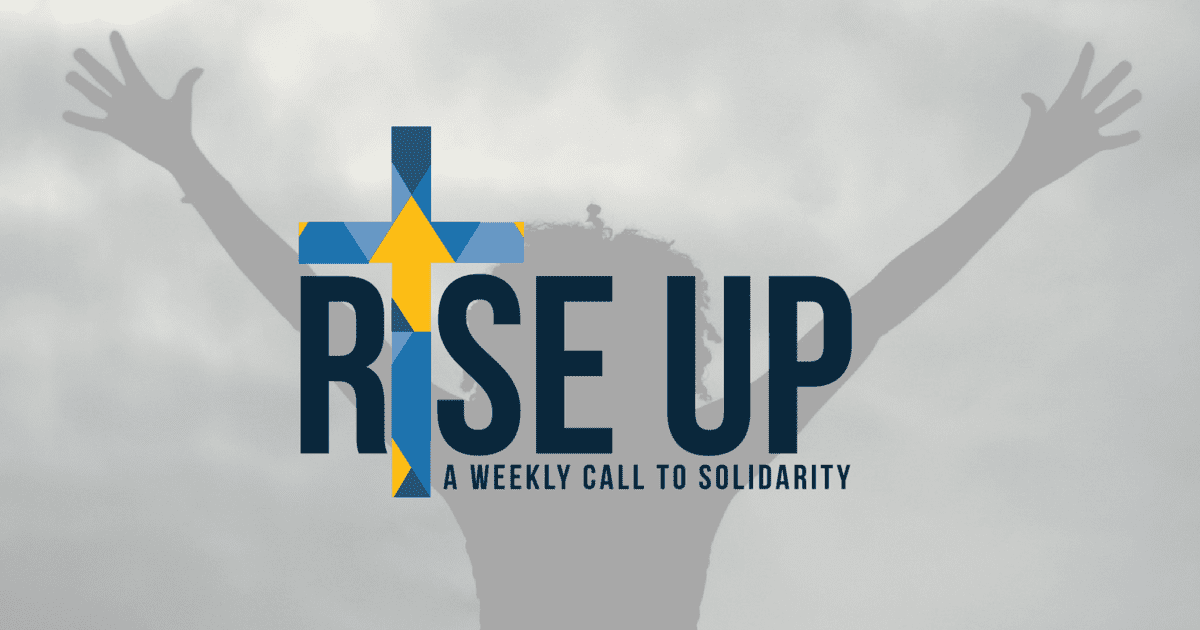Believing Without Seeing
BY SUSAN HAARMAN | April 12, 2021
Sunday’s Readings

As someone who specializes in experiential learning, I understand where Thomas is coming from in yesterday’s readings. Sometimes, it’s only those first hand encounters that are the moments when an issue becomes real to us and begins to matter in a way that has implications for our daily lives. Sure, data is important, but seeing a melting iceberg in Alaska for yourself will quickly make you understand the incredible danger of climate change and its immediate seriousness. The power of encounter and how it can transform our minds and hearts is at the core of Jesuit education’s commitment to service and praxis.

At the same time, as Jesus reminds Thomas that “Blessed are those who have not seen and have believed,” I begin to wonder if there’s a danger in lionizing a Thomas approach to educating for justice. In the work that I do around service-learning, we try as best as we can to prioritize the needs of the community partners we’re working with and ensure the respect that they deserve as co-educators. At the same time, there is a constant worry in the back of my mind. Are these partnerships really mutual? Are we using them as a means to the end of our students’ learning or “salvation?”
Especially as a white and cis-gendered identified person who carries a great deal of privilege, I have to ask myself—are the experiences of oppressed folks somehow less real if I haven’t been there to witness them first hand? As we are bombarded by accounts of how Black and Brown bodies are continuously endangered, do we demand proof that their experience is not just “a fluke?”
As I reflect on the challenges of when I have demanded that “Thomas moment” before I believed in the reality of white supremacy enough to act, I pray that the hearts of my fellow privileged white Christians will respond to the call to act for justice without a demand for proof that their reality is not the only one.
Dr. Susan Haarman is the associate director at Loyola University Chicago’s Center for Engaged Learning, Teaching, and Scholarship where she facilitates faculty development and the university’s service-learning program. She has degrees from Marquette University, Loyola University of Chicago, and the Jesuit School of Theology at Berkeley, and previously served as the faith and justice campus minister and ran service immersions. In addition to having a Ph.D. in Cultural and Educational Policy Studies, she holds a Master’s in Divinity, a Master’s in Community Counseling, a certificate in directing the 19th Annotation of the Spiritual Exercises, and is a licensed therapist. Her research focuses on the intersection between social justice education, community-based learning, civic identity, and imagination. She is also an improviser and a storyteller. She plans to spend Pride trying to talk her girlfriend into finally watching D.E.B.S.









When I am around my family, I notice that this next generation is more sensitive to the needs and concerns of those who are brown and black with much more finesse and attention to where the people they are around want to be. It is a fine tuning of their social justice concerns in response to the God within each and every person. This fine tuning establises a loving relationship right way. It is so good for me to see the behavior of my family as one of acceptance and love. They hear what the person is saying on a deep and profound level and take it into their hearts. They respond to the issues with equity and a desire for peace and freedom for all. The call of social justice to abate violence is manifest in the words that describe the interactions that take place. If the use of words has no violent undertones than the actions will follow through bringing peace, prosperity and a love of all. This generation is going in the right direction with the wisdom and grace of the Holy Spirit.
Very thought-provoking piece by Susan. Thanks. Resurrection is a mighty event. Time and again the Risen Lord wipes away our tiny thoughts and insignificant feelings of being white, black, brown, or yellow, as we march with our heads held high to our final destination.